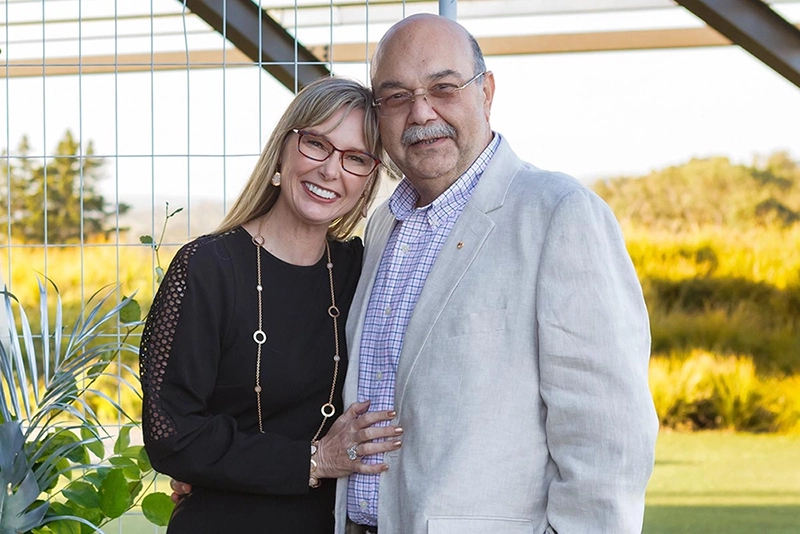عرض هذه الصفحة باللغة العربية
The Jreissati family story - Arabic
查看此页面的简体中文版本
The Jreissati family story - Mandarin
Xem trang này bằng tiếng Việt
The Jreissati family story - Vietnamese
Elias Jreissati received his diagnosis at 54 - around the same age that his father was when he lost him to the disease.
Jreissati Family Story
Elias Jreissati received his diagnosis at 54—around the same age that his father was when he lost him to the disease.
When Elias first went to his doctor, he wasn’t experiencing any unusual symptoms. He’d been out for dinner with his wife a few days earlier and thought he’d been suffering the after-effects of food poisoning. But his doctor wasn’t convinced and wanted to investigate based on his family history. Blood tests showed Elias had elevated liver enzymes. Wanting more information, his doctor arranged for an ultrasound, CT and MRI scan. The tests found nothing unusual. Even his blood tests had returned to normal.
At this point, Elias believed that his health was fine. He didn’t want more tests, but his doctor continued to investigate. It was only after an endoscopic ultrasound that his specialist found a stage 1 tumour. At the time of his operation 23 days later, the tumour had advanced to stage 2. According to Elias, if it hadn’t been for his doctor's persistence, he wouldn't be here to tell his story today.
This was the start of a frightening journey for Elias and his family. There was so much information to read and understand. When asking questions, they were receiving mixed messages and conflicting views. Elias’s wife, Colleen, felt like they were in the dark, lacking the information they needed during certain stages of Elias’s treatment. There was also no centralisation of care available in Melbourne for pancreatic cancer patients at the time. This meant that he needed to visit different locations for consultations and treatment.
Based on their experience, the Jreissati's wanted to change the journey for others. It was time to do better and be better when it came to pancreatic cancer. It was with this vision that the family approached the Epworth Medical Foundation and established The Jreissati Pancreatic Centre at Epworth.
Make a donation today
Your donation will go to lifesaving research and technology to provide the best in patient care, as well as contributing to saving the lives of those with this deadly disease.Talk to our pancreatic nurse coordinator
Get referred
What my family and I are hoping to see...is a real tangible difference to early detection, patient experience and family experience.

